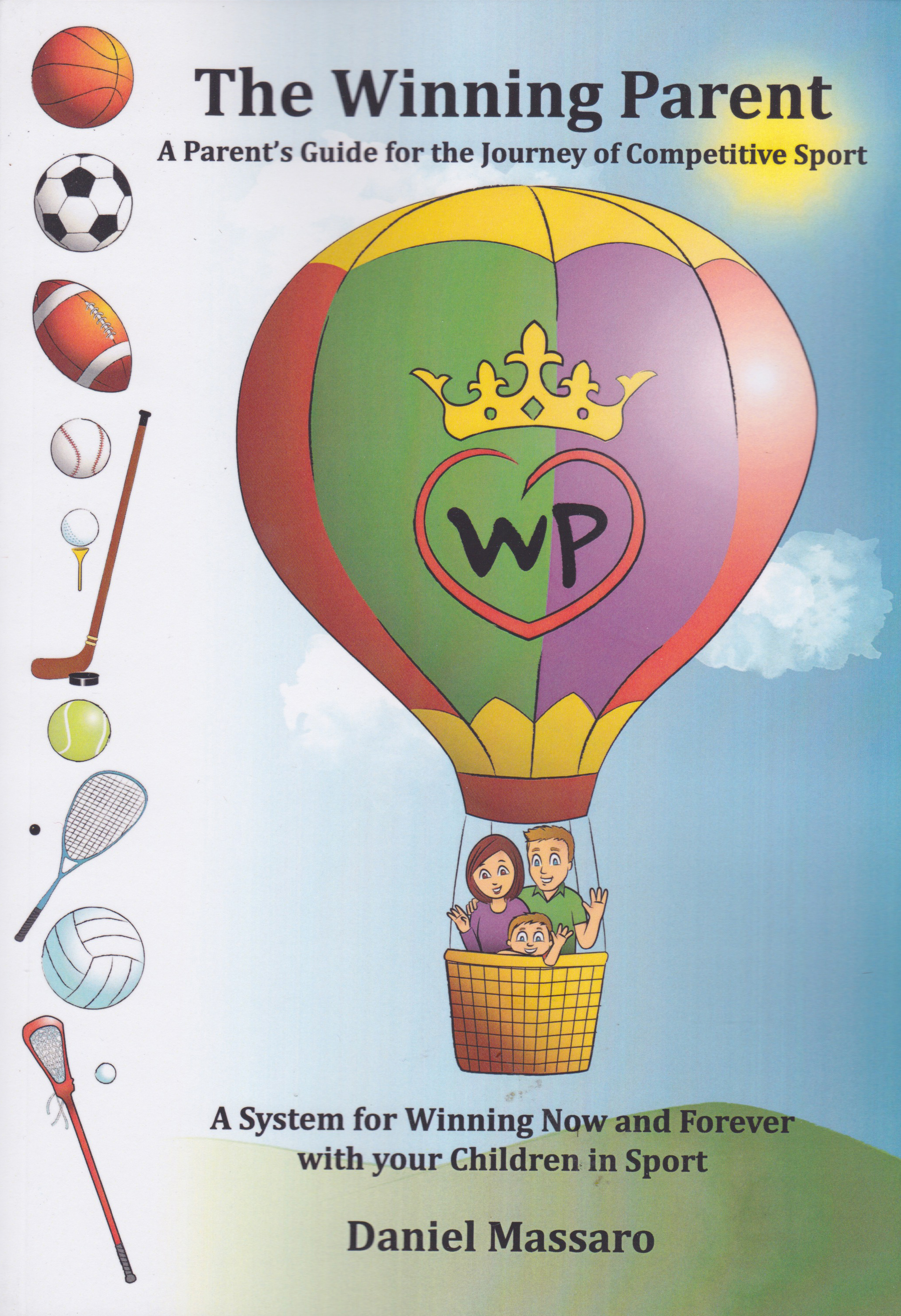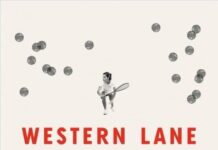By James Zug
The Winning Parent: A Parent’s Guide for the Journey of Competitive Sport—A System for Winning Now and Forever with Your Children in Sport
By Daniel Massaro
(New York: Mairs & Shaw Publishing, 2015)
 Last year Danny Massaro published this important book about parenting and sports. A Brit in his early forties, Massaro lectures at the University of Central Lancashire and works both with national governing body coaches in conjunction with UK Sport and with young athletes.
Last year Danny Massaro published this important book about parenting and sports. A Brit in his early forties, Massaro lectures at the University of Central Lancashire and works both with national governing body coaches in conjunction with UK Sport and with young athletes.
The most prominent young athlete he coaches is his wife, Laura Massaro. The new world No. 1 in January and former world champion and British Open champion, Laura has been with Danny for a dozen years and they married in 2007. Danny has played a key role in Laura’s rise to the top of the world.
Indeed, a fascinating thread in Winning Parent is how Danny weaves in stories of their professional relationship. Danny relives two World Championships: in 2010 Laura lost in five in the second round and Danny recalls their conversation after the match when he spoke very negatively to Laura; and in 2014, after she won the last point in the final, Danny was “repeatedly jumping into the air like a stranded fish trying to leap back into the water. Each time I landed on the floor, I felt a huge force bouncing me back up into the air again, as if the whole arena floor had turned into one huge trampoline. Each time I landed and my brain shouted “World Champion,” I was airborne again.”
And in between a journey. To keep himself calm while watching Laura, Danny has learned to read a list of some mantras on his phone. They include the practical—don’t drink coffee before and do keep your hands still—to the abstract—“Trust Laura, she is doing this for her and will find a way.” The Massaros also maintain routines at tournaments, so they don’t heighten the perceived importance of the event. At the 2014 World Championships in Malaysia, for example, they had a habit of alternating who would go each afternoon to get drinks from a café. On the afternoon of the final, it was Laura’s turn, and people watched in amazement as she strolled out to the pool to deliver Danny’s Frappuccino as he lay sunbathing.
Winning Parent is not, as Danny states in his introduction, totally unique. I have a dozen similar books on my shelves, including some that have the same sort of advice. Having one that does more than mention squash is fabulous, though. Danny quotes from long interviews with David Pearson, the famed British coach, and with Basma Elshorbagy, the mother and coach of the brothers Mohamed and Marwan.
Danny supplies a wide range of sources for his advice, ranging from Depeche Mode to Aristotle, John Wooden to Harper Lee, William James to Sir Alex Ferguson. Winning Parent is definitely a workbook: Danny employs graphs, charts, bullet points, cartoons and letters, and he leaves places blank for readers to make notes and answer questions.
Sometimes Winning Parents feels a bit scattered, as Danny quickly brings up a philosophy or idea and then moves on. But it contains good stories that made me ponder (imagine if parents were in the classroom at school like they are on the sports field), insights that made me step back (the difference between motivation and inspiration or between knowledge and wisdom) and practical advice that I found useful (do you carry your child’s squash bag into the venue? Do you talk about the matches on the car ride home? How do you handle social media?).
The crazy parent syndrome is all too endemic in youth sports, so there is sadly an obvious need for this kind of book.
The University Club 1865-2015: 150 Years of the University Club
Edited by Percy Preston, Jr.
(New York: University Club of New York, 2015)
The Merion Cricket Club: A History 1865-2015
George E. Brown, III
(Haverford: Merion Cricket Club, 2015)
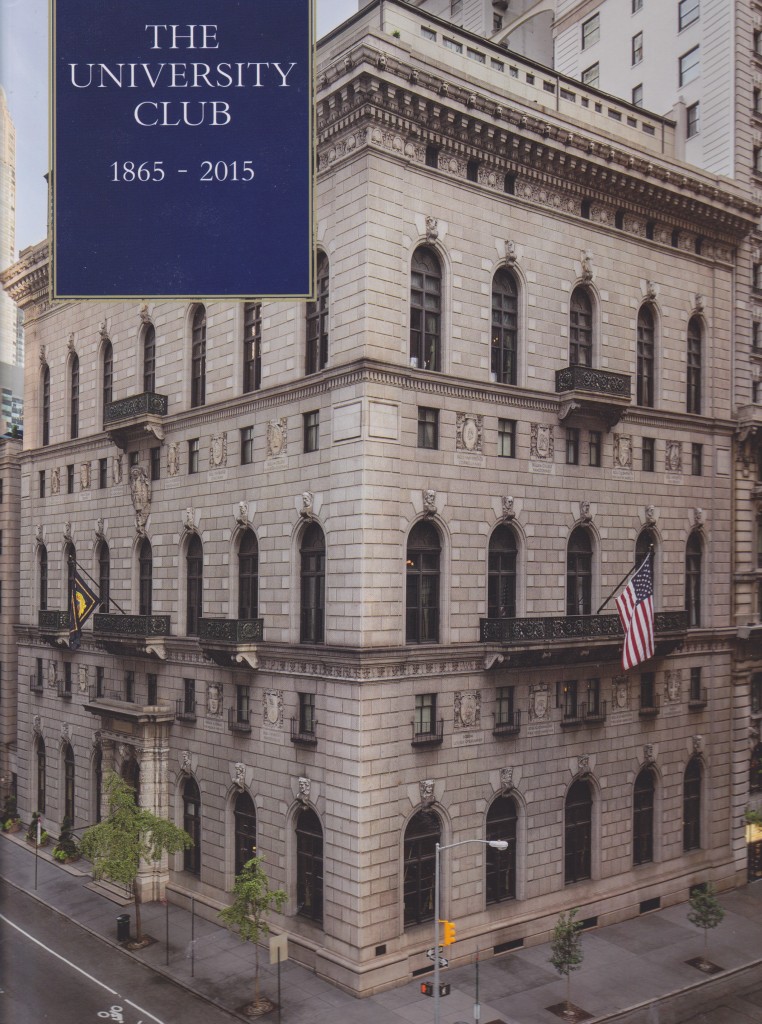 It is a curious coincidence that two of the most important squash clubs in the country were both originally founded in the waning days of the American Civil War. Last year the two clubs celebrated their sesquicentennials with coffee-table books.
It is a curious coincidence that two of the most important squash clubs in the country were both originally founded in the waning days of the American Civil War. Last year the two clubs celebrated their sesquicentennials with coffee-table books.
The University Club of New York’s book is a large, grand affair, 12 x 9 inches, and 178 pages and two expensive foldouts, one of which shows a computer-generated exterior and interior image of the club’s eleven floors; the Merion tome is much less ambitious, 9 x 11 inches and 112 pages. Both are full of page after page of photographs that make their history accessible and that take you inside their starchitect clubhouses (Charles McKim designed the University Club: Frank Furness did Merion).
Ninety pages of the University Club’s book are focused on invitations, menus, press clippings and correspondence relating to club dinners, talks, exhibits and concerts. There are also chapters on the club’s library, its fine arts and decorative arts collection and squash history (I wrote the latter). The library, for instance, is the largest private club library in the world, with more than 100,000 volumes; and the paintings and murals in the collection are stunning.
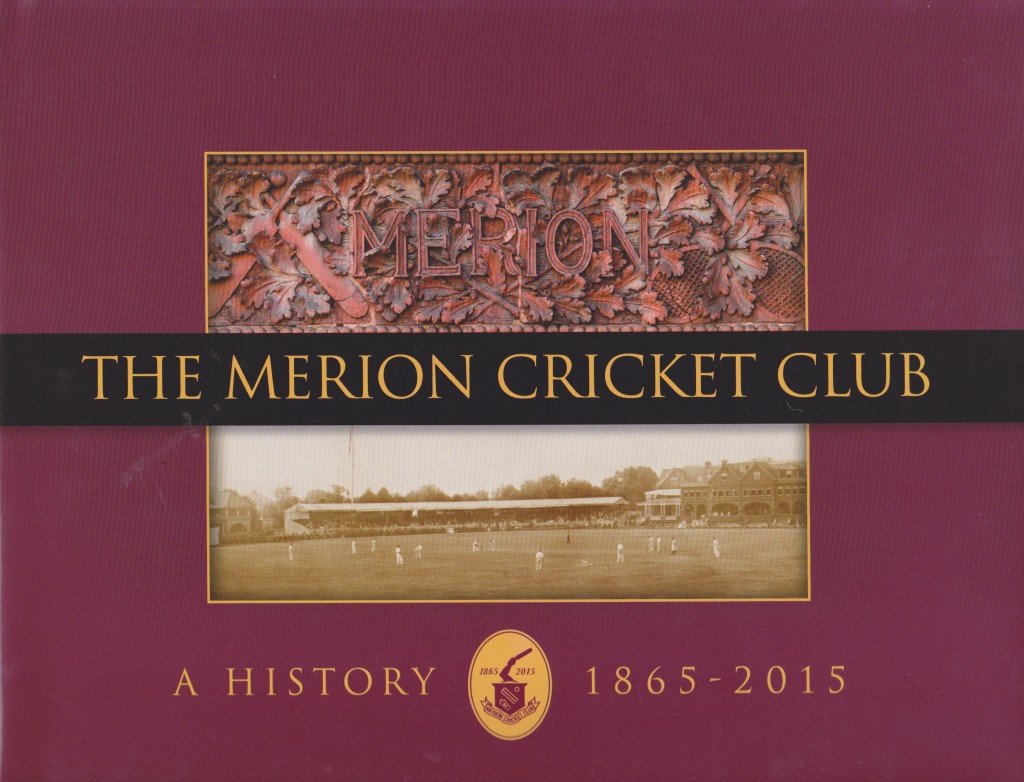 Merion’s book touches on its golf history (the club and Merion Golf Club split in two in 1942), cricket, croquet and tennis. The latter was perhaps the club’s most famous sport for many decades, as it hosted the Pennsylvania States and even the Davis Cup in 1939. Oddly, there is almost no mention of platform tennis (paddle tennis), bowling or soccer, all longtime popular sports at Merion.
Merion’s book touches on its golf history (the club and Merion Golf Club split in two in 1942), cricket, croquet and tennis. The latter was perhaps the club’s most famous sport for many decades, as it hosted the Pennsylvania States and even the Davis Cup in 1939. Oddly, there is almost no mention of platform tennis (paddle tennis), bowling or soccer, all longtime popular sports at Merion.
Squash gets a half-dozen pages in both books, including memorable archival photographs like Hashim Khan wristing a forehand drop at the first U.S. Open at the University Club and the one of Merion’s five male national champions on Merion’s famous five-acre lawn in Sports Illustrated.
Dividing the Union: Jesse Burgess Thomas and the Making of the Missouri Compromise
Matthew W. Hall
(Carbondale: Southern Illinois University Press, 2016)
Speak
Louisa Hall
(New York: HarperCollins, 2015)
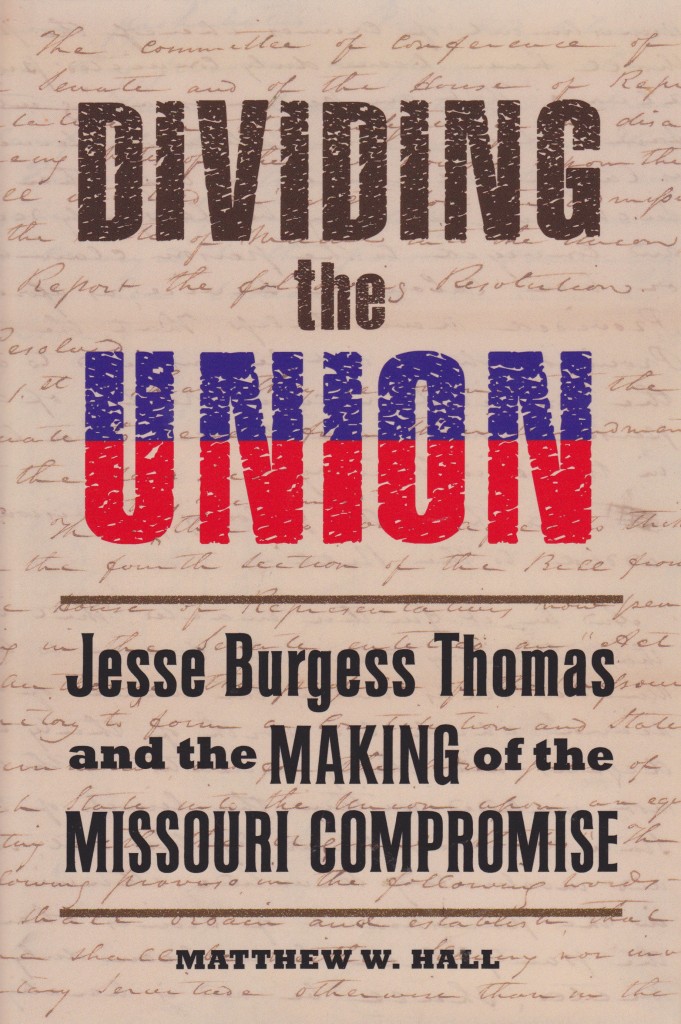 A most unusual pairing, this father-and-daughter combination delivers two vastly different books. They are dedicated to each other.
A most unusual pairing, this father-and-daughter combination delivers two vastly different books. They are dedicated to each other.
Matt Hall is a longtime squash player, formerly at Merion and now in Santa Barbara. His first book is a scholarly investigation of the Missouri Compromise of 1820. He views it through the biography of one of its chief architects, Jesse Burgess Thomas. Taking us back two centuries, Hall writes eloquently of Vincennes, a French village in what was to become Indiana: “The town’s only connection with the outside world was a post rider who came once a week over a well-worn buffalo trace winding through the forest from the falls of the Ohio near Louisville.”
Thomas, a U.S. senator and slave-owner who mastered the politics of leading territories into becoming states, is an intriguing, now sadly forgotten figure. You wish for more primary sources for Matt to work with—the mention of his suicide, by a razor to his throat, on the last page comes as a surprise. But Matt’s detailed, day-by-day analysis of the Compromise leaves no doubt at Thomas’ impact on the agreement and how it would ultimately fail thirty-four years later.
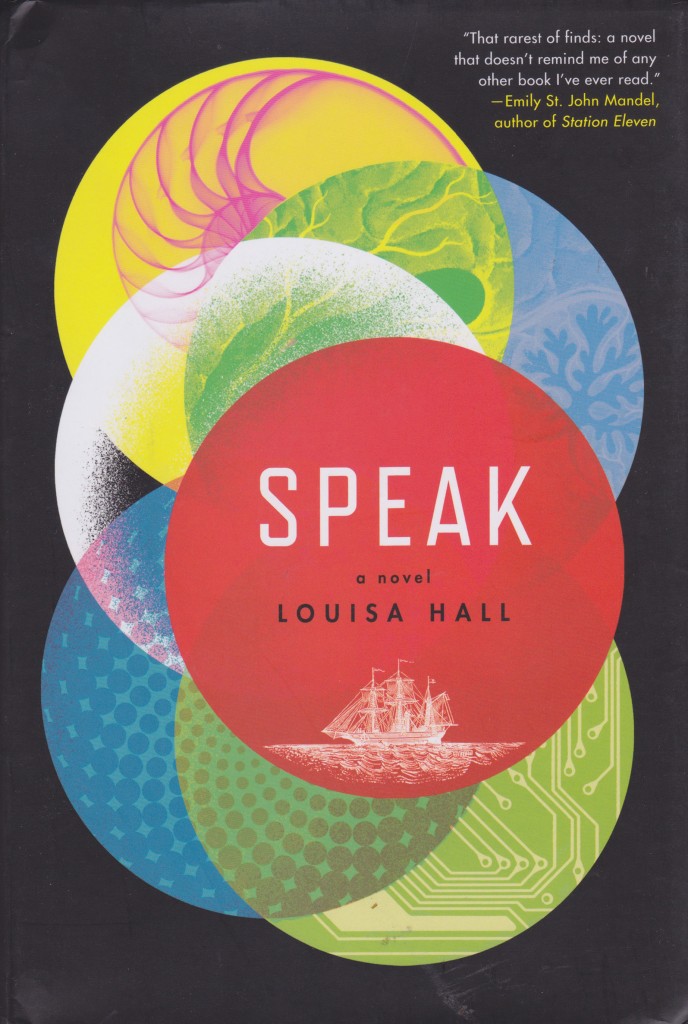 Matt’s daughter Louisa was a national junior and intercollegiate champion, playing at Episcopal Academy and then Harvard. After college, she played professionally, reaching world No. 60. (She’s the fourth Crimson female squash player to publish a novel in the past decade: Jordanna Fraiberg ’93, Galt Niederhoffer ’97, Ivy Pochoda ’98 and now Hall ’04. Pochoda blurbs this book.)
Matt’s daughter Louisa was a national junior and intercollegiate champion, playing at Episcopal Academy and then Harvard. After college, she played professionally, reaching world No. 60. (She’s the fourth Crimson female squash player to publish a novel in the past decade: Jordanna Fraiberg ’93, Galt Niederhoffer ’97, Ivy Pochoda ’98 and now Hall ’04. Pochoda blurbs this book.)
I reviewed Louisa’s first novel, The Carriage House, in the Boston Globe and commented about how she told her story with seven alternating voices. In Speak, her second novel, she again uses a half dozen storytellers, ranging from a young Puritan woman in the 1660s to Alan Turing, the renowned scientist, to characters in the future. The subject of The Carriage House was family; here it is artificial intelligence and the icy, complicated crevasses in communication between humans and between humans and computers. Whether delighting in postscripts or Copernicus or the ocean, Hall writes with illumination: “This is all we get, I thought. Just quick moments of brightness that get taken away before you understand what you’ve been given.”


